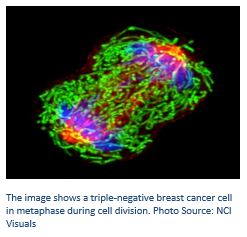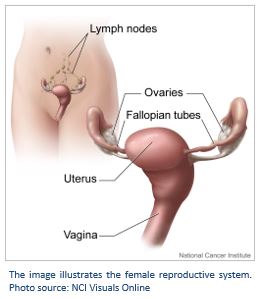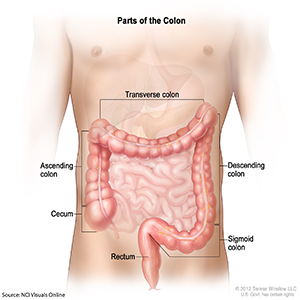Northwestern’s Kelleher Laboratory Develops Top-Down KRAS Isoform Assay to Detect Protein Mutations and Modifications
Mutations in the RAS genes — KRAS, HRAS, and NRAS — have been identified in approximately 30% of all human cancers. While RAS gene family members encode proteins that are pivotal for cytoplasmic cell signaling, RAS oncogenes

 Breast cancer
Breast cancer A catalogue of molecular aberrations that cause ovarian cancer is critical for developing and deploying diagnostics and therapies that will improve patients’ lives. Because a comprehensive molecular view of cancer is important for ultimately guiding treatment, the National Cancer Institute (NCI) Clinical Proteomic Tumor Analysis Consortium (CPTAC) has released the cancer proteome confirmatory ovarian study data sets.
A catalogue of molecular aberrations that cause ovarian cancer is critical for developing and deploying diagnostics and therapies that will improve patients’ lives. Because a comprehensive molecular view of cancer is important for ultimately guiding treatment, the National Cancer Institute (NCI) Clinical Proteomic Tumor Analysis Consortium (CPTAC) has released the cancer proteome confirmatory ovarian study data sets. The National Cancer Institute (NCI) Clinical Proteomic Tumor Analysis Consortium (CPTAC) announces the release of the cancer proteome confirmatory colon study data. The goal of the study is to analyze the proteomes of approximately 100 confirmatory colon tumor patients, which includes tumor and adjacent normal samples, with liquid chromatography-tandem mass spectrometry (LC-MS/MS) global proteomic and phosphoproteomic profiling.
The National Cancer Institute (NCI) Clinical Proteomic Tumor Analysis Consortium (CPTAC) announces the release of the cancer proteome confirmatory colon study data. The goal of the study is to analyze the proteomes of approximately 100 confirmatory colon tumor patients, which includes tumor and adjacent normal samples, with liquid chromatography-tandem mass spectrometry (LC-MS/MS) global proteomic and phosphoproteomic profiling.